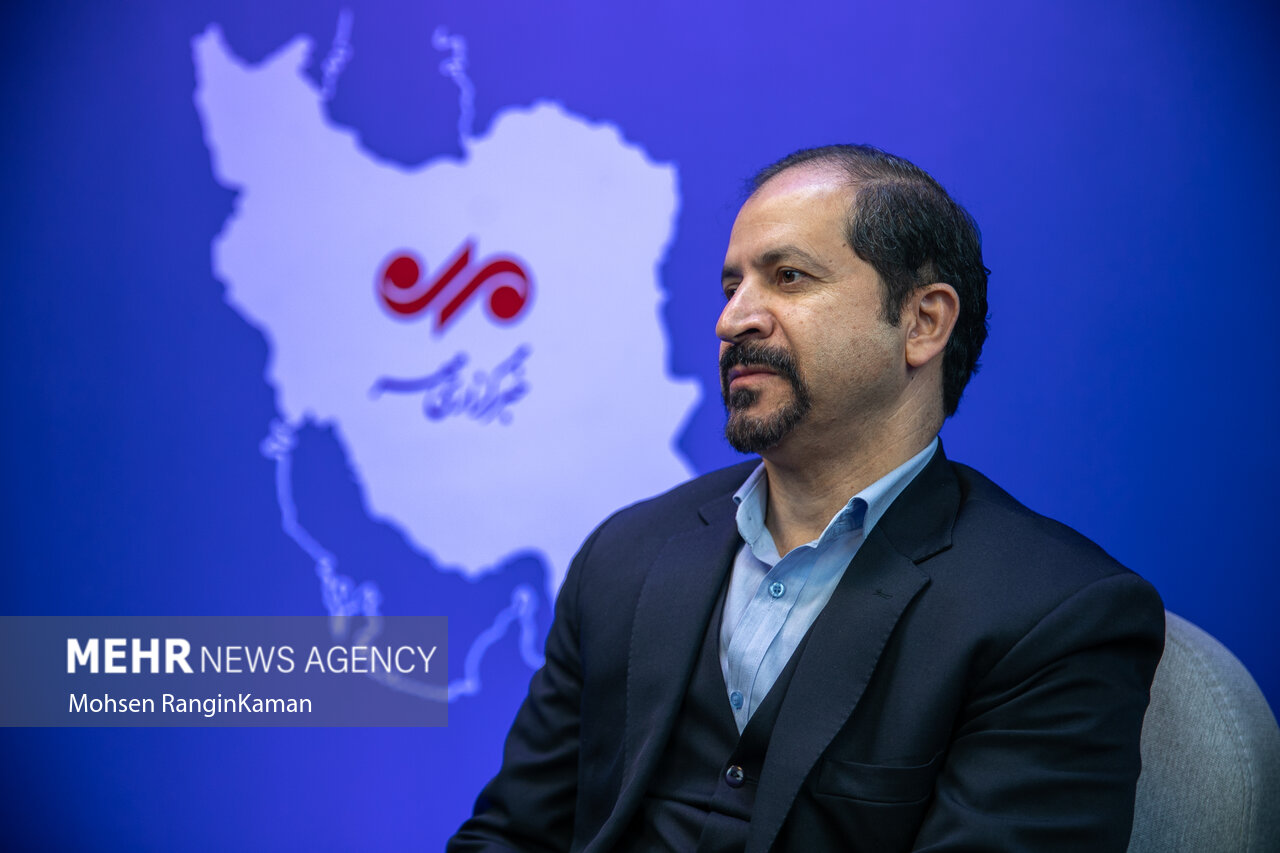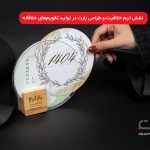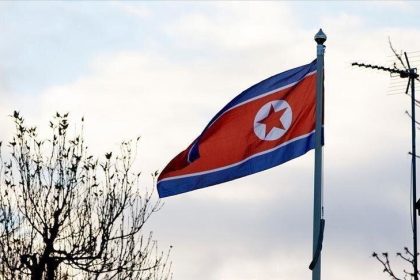– Department of Science and Technology, Saadane Tabatabaei Nia: The 25th of December in the official calendar of the country has been named as “Research Day” in order to expand the culture of research and honor the position of researchers, and since 1379 the Ministry of Science, Research and Technology, the last week of December called it “Research” week. In this week, universities and research institutes across the country introduce the best researchers and technologists. This year, the provincial research week was held from December 10th to 22nd, and the national research week started from December 23rd and will continue until December 29th.
On the occasion of research week, in a detailed conversation with Dr. Peyman Salehi; Deputy Research Minister of Science and Head of National Research and Technology Week discussed the most important issues in the field of research and technology in the country.
* One of the most important issues today in the field of science and technology is the status of Iran’s scientific ranking in the world and the decrease in scientific publications of universities. Considering the emphasis of the Supreme Leader, what is your plan for a new scientific leap?
When we look at the process of Iran’s science production until 2022, we have had an upward trend in terms of the number of scientific publications. The latest statistics are currently for 2023, because the official statistics for 2024 will be finalized in May next year. In 2023, unfortunately, both the universities of the Ministry of Science, the universities of the Ministry of Health and the Islamic Azad University all had a downward trend. There are many reasons for this issue, but what has especially contributed to this is the reduction of research budgets.
If we want to calculate the amount of research budgets, we can see that the number of research budgets has increased every year. But many of our expenses in research are not realistic. Many expenses and purchases, especially the infrastructure we need in research laboratories, must be calculated in dollar terms. It should also be noted that many of the world’s brands do not currently have an official representative in Iran, so there are problems in providing these products that even we have to pay more than the global price. When the equipment does not have an official representative in Iran, we have to pay more for repair and equipment. We spend almost multiple times more on infrastructure, which is the most important part of medical, basic science, engineering and agricultural research.
On the other hand, in another report that I presented, I mentioned that if we want to measure the amount of our expenses in currency every year, our research budgets in the country have decreased. In 2010, the total budget of the Ministry of Science (including universities, research institutes and parks) was equal to 2 billion dollars, and this budget was reduced to 1 billion in 1402. Of course, in addition to the government budget, the universities have also had special income, and it is not the case that the government has given all the university budgets. In addition to the contracts with the industry, universities have income from the field of education, international students, etc.
The number of riyals in the research budget has increased every year. But many of our expenses in research are not realistic. Many expenses and purchases, especially the infrastructure we need in research laboratories, must be calculated in dollar terms. It should also be noted that many of the world’s brands do not have official representatives in Iran at the moment, so there are problems in the supply of these products that even we have to pay more than the global price.
In 1402, universities such as Sharif, Amir Kabir, Alam and Sanat, Tehran, had about 30% of their own income, and 70% of their budget was provided by the government and 30% of it was provided through special income. Therefore, a number of our universities, like many leading universities in the world, provide a part of their budget through dedicated income. Today, we have research institutes that have earned 50% of their budget this year through dedicated income.
There are also other needs such as payment of salaries, issues related to students such as transportation, dormitory, student space, etc. In this situation, when the budget decreases, the share of the research budget also decreases. Research budget means spending on infrastructure, the cost needed for grants, international interactions and research grants, etc. Therefore, the research budget may have increased in terms of riyal, but our purchasing power has not increased. This is a very important issue.
Also, we are good at joint activities and international communication, but we should do more of these activities to be able to use international financial resources. Our international connections, especially with the Organization of the Islamic Conference, the Islamic Development Bank, and the Science and Technology Committee of that organization (COMSTEC), can be helpful to bring our capacity to the fore and to be able to use financial resources in joint projects, despite the difficulties in moving money. And… there is, let’s use it.
Other factors also play a role in this. For example, setting a salary cap for professors was one of the factors that had a negative effect on professors’ motivation. Also, the year when a stepped tax was applied to professors’ salaries contributed to dissatisfaction. However, other policies may also have played a role.
The issue of immigration is also a serious discussion in this field. I have been living in this environment with university professors for about 29, 30 years. Most of the professors are so passionate about their country and their beliefs that they stay in their own country, but from a certain point on, finally, there may be attractions for them on the other side of the borders. Therefore, we must pay attention to the livelihood of these professors and the issue of infrastructure and research facilities.
There are many professors for whom livelihood issues are a secondary priority, but when they see that there are no research facilities, the thought of leaving the country may come to their mind in any way. Therefore, all these issues can contribute to the occurrence of problems.
What steps have been taken to solve these problems?
We took one or two steps to solve these problems. First of all, it is mentioned in the law of the 7th development plan that 15% of the budget of universities should be allocated to the field of research. We are seriously pursuing this issue through the Program and Budget Organization and the Islamic Parliament, and this should happen this year anyway.
I hope it does and I am not at all disappointed. Because I am also in the board of trustees of various universities and research institutes, I see that this 15% is included in the budget law for this year and next year. So we have to move towards operationalizing this issue. When 95% of a university’s budget is already spent on salaries and student issues, etc.
In the seventh law of development, it is mentioned that 15% of the university budget should be spent on research and technology and 5% on cultural affairs. Everyone must cooperate, we, the program and budget organization, and the honorable parliament must cooperate, and considering that we are in the budget season, the budget of 1404 must be closed in such a way that this 15% and 5% can be applied.
* Are these issues considered in the government’s proposed budget?
It is not the case that universities have separate research lines. Last year, we had universities that spent about 18, 19% on research, and this estimate has been made. One part of it comes from dedicated revenue, and universities that have gone well towards dedicated revenue have been able to spend more on research and technology and have good revenues.
Now, the budget has not been closed yet, but our proposal has been sent to the parliament by the government and has been reviewed by the consolidation commission. If this 15% is provided, in addition to other policies, the conditions can be improved.
The Grant Regulations have been approved by the Boards of Trustees of all universities and research institutes and are effective from this year. In our own university, I observe that with the implementation of the grant regulations, the grant of many professors has increased by about 3 times. This is funded from the same 15% research in the budget. So all these issues are related. What does a teacher want from us? Research grant, laboratory infrastructure, international communication and…
Last year, with the grace of the Supreme Leader, 100 million euros were allocated from the National Development Fund to the Ministry of Science, of which 10 million were spent on databases, which was a good thing, and we settled a major part of the debt to databases. Even now, God willing, a budget will be injected soon with follow-ups by the honorable minister so that we can connect universities and research institutes that pay a small share to the databases by 2025.
Valuable laws have been approved in the seventh progress plan and the law must be implemented. I hope that regulatory bodies are also sensitive to this issue.
I regularly visit all universities and have close contact with faculty members and students. Therefore, I know that this capacity exists in our country to reach the goals of the 7th plan. This means that our capacity has not been lost and this is the same capacity that has brought us from the 54th place in 1996 with the highest growth rate in the world to the 15th place in 2022.
Of course, we must also pay attention to the fact that when we get close to the peak, it becomes difficult to climb even one step. It is true that we rose at a maximum speed during a period, but it was not the case that the countries around us waited for us to progress. Countries around us, whether regional countries like Saudi Arabia and Turkey or countries like the Netherlands and Brazil, which rank close to our scientific rank, spend several times as much as we do in this field. Our strength is human power and their strength is their high investment.
These two parts must reach a balance somewhere. Currently, this balance has gone towards financial resources; Because they are investing in human resources and in terms of financial resources for infrastructure and international communication. Therefore, if we want to improve this situation, in addition to financial resources, we should try to increase our international activities.
One of the actions we took in this regard was that at the end of the previous government, we compiled the bylaws of international interactions in the Ministry of Science. Considering that this issue also needs financial resources, we hope it will be approved by the board of trustees of all universities as soon as possible. Because this regulation of international interactions can be a good way forward in this field.
So see, we have compiled a comprehensive package, for all these things to happen. In addition to these, the discussion of incentive bases, which is based on people’s performance, was one of the actions in this field.
In addition, last year we gave special grants to 4,000 people who were hired in the previous five years. People who are employed in universities and research institutes are really the best; Because they go through a very tough screening and through different stages. Therefore, 4,000 of these people were given minimal assistance. We also created a budget line and gave one percent and two percent special grants to all scientists of the country, and special grants were also allocated to the country’s top researchers and exemplary professors.
In addition, we must thank the Iran Science Foundation and the Vice-Chancellor for Science, Technology and Knowledge-Based Economy. Because we have a very good cooperation with Iran Science Foundation. The Iran Science Foundation has a very good partnership with the Ministry of Science in various areas of supporting dissertations, theses, post-doctoral courses and special research projects, and part of the resources of the Science Foundation has somehow gone to universities.
* The issue of increasing the share of R&D in the GDP is an issue that has been emphasized in various upstream documents. In the country’s comprehensive scientific map document, it is stated that the share of research and development in the GDP will reach 4 percent, with two percent provided by the government and two percent by the private sector. In the seventh development plan of the country, as in the previous plans, it has been proposed to invest two percent of the gross national product in research and development. In 1401, the Program and Budget Organization announced that the share of research and development in the gross domestic product is 42 percent, but this statistic was not announced for 1402. Has there been an estimate of how much this amount was?
In 1402, in the most optimistic case, our statistics is 57 percent. This is also one of the topics that various upstream documents have paid attention to; But unfortunately, it has been neglected or not taken seriously in recent years.
In the policies announced by the Supreme Leader in the field of science and technology in 2014, it is mentioned that 4% of GDP should go towards research and development; In the sixth development plan, 4% is mentioned, of which 2% is the share of the government and 2% is the share of the private sector. In the 7th program, this issue has been taken into consideration. However, only one year has reached 7 tenths; But no other year has been higher than half a percent.
Last year, the vice president of science and technology conducted a survey on how much the private sector’s contribution to research and development or R&D expenditure was. Last year’s estimate of the Scientific and Technological Vice-Chancellor of the country’s research and development in the public and private sector was about 82 percent. If we believe that half of this amount belongs to the public sector, the share of the private sector is 32 percent.
Normally, in developed and developing countries, most of the share of research and development in the GDP is related to the private sector. Currently, in our country, the government spends twice as much as the private sector in this matter. Of course, the government share is also small, but in other countries, the share of the private sector is double. The investment of other countries in this matter is strange; For example, this rate is 4.5% in South Korea.
So one of the issues is to make research real for the private sector. When does the private sector need research? When its technical know-how is domestically produced or it needs research to improve its own technical know-how. Therefore, when our technical knowledge is imported, there is no need for research and development to maintain or improve it.
One of the other debates is the state economy of the country. Currently, because we have a state economy, we expect the government to invest more. Whenever the basis of our economy was the private sector, then we can expect the private sector to invest more. Therefore, it is not correct to expect the private sector to invest twice as much as the government. Because most of our economy is not private. These issues are all related to each other and are necessary for each other.
* In recent years, the amount of university industry connection contracts has been growing, but despite the capacity of universities, we still could not use the capacity of all faculty members in this department and lead them to connect with industry. On the other hand, the Ministry of Science and especially the Supreme Council of Science, Research and Technology have a series of supra-instrumental tasks and should lead the industries to connect with the university. In this context, what measures should be taken to increase the amount and number of contracts with the faculty members’ industry?
You made a good point. This is a result of our previous discussions. We said before that our economy is state-run, the state budgets are not in good condition.
We have said many times that research and development is not an expense, but an investment, but finally managers should also believe this. Therefore, the first issue for more communication between universities and the industry is the belief of the senior managers of the public and private sectors in this matter.
Now there are really some big companies in the country that owe a lot of their progress to this connection with universities. In recent years, in the areas where we have made special progress, it has been through universities. Whether it is in the fields of defense or in other fields, anyone who thinks that we reached these achievements without the help of the university is wrong. So those departments that have come to the university must have benefited from it.
Years ago, in the field of biotechnology, the country finally reached the conclusion that the national document was approved by the Supreme Council of the Cultural Revolution and implemented. After that, a lot of good things happened. At the same time, some of our universities offered continuous PhD in Biotechnology and attracted double-digit and single-digit entrance exam ranks for continuous PhD in Biotechnology. Also, we have a biotechnology research institute in the Ministry of Science, which is very successful. On the other hand, the scientific vice president, the Ministry of Science, etc. were all mobilized, and on the other hand, the support for knowledge-based companies in this field increased, and with these measures, good things happened in our bio-technological ecosystem. On the other hand, the government started giving special privileges to this area.
Currently, we export biotechnology products to 60 countries in the world, and this field has become an economic one. Most importantly, we were able to keep our children in biotechnology in the country. because they have income and can do research in this field; What an elite person, scientist and researcher likes, they have in Iran and they have achieved everything and they stay and work.
I want to say that we have such examples in the country. In one course, we focused on the nano field. A more distant example that some may not know is the field of medicinal plants and natural products. About 15 years ago, the number of natural herbal products approved by the Ministry of Health was the size of the fingers of two hands. In the Council of Cultural Revolution, the National Document of Medicinal Plants was approved, the Ministry of Science and the Ministry of Health launched courses in this field, investments were made, research institutes of medicinal plants were launched, and the Ministry of Health established the Vice-Chancellor of Traditional Medicine.
Now we have several hundred factories in this field in the country, and I think about five thousand products of natural products and herbal medicines have been licensed by the Ministry of Health, and people use their products, and a part of them is exported. We also have very strong companies and brands that operate in the region.
Therefore; Whenever we have focused on these issues, we have been able to achieve results with the cooperation of the university, government and industry. Our universities are on the job and whenever they were referred to, no one was disappointed or regretted.
* Currently, what is the amount and number of contracts with the university industry?
The number of contracts related to our industry has increased in terms of riyal, but finally, it has not been as desired and this issue is the result of the first part of our conversation.
The latest statistics of university-industry relations contracts for this year, which I recently presented to Mr. President, are about 11,600 contracts to date. The amount of these contracts last year was about 5,800 billion tomans, and this year we reached 7,000 billion tomans. Of course, I must emphasize that both the capacity of the country and the capacity of our universities in this field are much greater.
Several actions have been taken in this field, one of which is the opportunity to study inside, which I think is a good thing. The internal study opportunity has been running for several years and so far about 1,800 people have used the internal study opportunity. Currently, according to the approvals, no faculty in any field can change the status, unless the study opportunity is gone.
Some say that in some fields or some provinces, there is a limit for the study opportunity, which is foreseen in the regulation of their alternatives and is at the disposal of the board of the university or research institute.
Another very good thing that has happened in this field is the approval of the knowledge-based production jump law in the parliament, which helps a lot in this matter. We are currently in the promotion period.
Article 13 of this law states that any public or private company that signs a contract with a university or research institute can use it as a tax incentive. This is a very good thing. Personally, I regularly travel to different provinces and have meetings with governors and different industries in this field and inform about this issue at this level. In my opinion, the biggest thing that can increase and expand university-industry relations contracts this year and next year is using the capacities of the knowledge-based production leap law.
Of course, the knowledge-based production jump law has many other capacities for science and technology parks and different sectors, but it is very important for the contracts with the industry, Article 13 and Article 11, Clause B.
Now the whole country has been justified about it, and we had several meetings with the tax affairs organization, and really all those who are active in the tax field should help us so that this capacity of tax credit or tax incentive comes to industry relations contracts. On the other hand, we have put special incentives in the discussion of promotion and in the discussion of grant. In the regulation of special credit or grant, coefficients 2 and 3 are foreseen for people who have plans to communicate with society and industry. On the other hand, in the post-doctorate law, we also stated that if someone has a plan to connect with the industry and participates in the post-doctorate, 50% of his salary will be paid through the Supreme Council of Ataf. Therefore, we have brought all the incentive capacities to this side.
*Currently, the comprehensive scientific map of the country is being revised and updated. The document of the comprehensive scientific map of the country was compiled and communicated by the Supreme Council of the Cultural Revolution from the beginning, and the updating of this document is currently being done by this council. Considering that the Supreme Council of Science, Research and Technology (ATAF) is responsible for the policy making of the country’s science and technology and the first vice president has also emphasized on the revival of the Supreme Council of Ataf, the Supreme Council of Ataf in revising the country’s comprehensive scientific map document, What role will it play?
I have to explain something here. In the country, we sometimes formulate laws for policymaking, because until something becomes a law, it may not be guaranteed to be implemented.
Regarding the involvement of the Supreme Council of the Cultural Revolution in this issue, I must say that in our country the Parliament has its place for legislation and the approvals of the Supreme Council of the Cultural Revolution are within the law according to the Supreme Leader’s order. Therefore, the Supreme Council of the Cultural Revolution has entered into the compilation of the comprehensive scientific map of the country.
Let me also mention this in parentheses that the Supreme Council of Ataf has been very active in the last three years. The old friends also worked hard and I don’t want to negate the previous activities, but the presence of the president after many years in the council meetings finally had an impact. We immediately submitted all the reports of the Supreme Council of Ataf to the dear ones in the new government, and we hope to reach Mr. Dr. Aref soon and present these reports directly to them. Also, the permanent commission of the council with new members (president and new members) will be formed soon.
Now the commissions of Ataf Council are very active and their reports are presented regularly; God willing, the permanent commission will be held soon. The new permanent commission is a report of the activities of the past three years and the duties of the High Ataf Council.
Regarding the comprehensive scientific map of the country, what has happened now, and we are now completely in the heart of this matter, is that the Supreme Council of the Cultural Revolution is responsible for updating the comprehensive scientific map of the country. This is not a revision of the map and is intended to update the previous document. This is a natural thing because the half-life of science and technology is so short that you cannot be satisfied with a 15-20 year plan and it must be revised.
Now the Supreme Council of Cultural Revolution has given the responsibility of revising the map to the Academy of Sciences. The Academy of Sciences uses the capacity of the Ataf Council commissions to review some issues, and I am fully aware of it. For example, currently, the Basic Science Commission of the Ataf Council is officially responsible for the basic science department of the map.
Therefore, the Academy of Sciences, as an institution that has a very prestigious scientific position in our country, and the Supreme Council of Cultural Revolution, as an institution that has compiled and approved the comprehensive scientific map of the country, have a role in updating this document. We insist that the approval of this document should become a law that everyone is required to implement; So we have no problem with this matter.
This review has been running for several months and is being discussed in the commissions of the Ataf Council. We hope that with the interaction between the Academy of Sciences, the Supreme Council of Ataf and its commissions, and the Supreme Council of the Cultural Revolution, this document will be revised with the planned plans.
I must also say that we in the Ataf Supreme Council have provided financial resources for this work and when we help in this work, we also provide financial resources ourselves to carry out these revisions and updates.
* Now we are in the research week. As a final question, do you think the research week has reached its goals from the beginning?
Research Week is a promotion week for us to bring to the fore the events that have happened in the field of science and technology in the country.
This year’s research and technology week has started on December 10 in the country. This means we have almost a month of research this year. Whether it has achieved its goals or not varies in each province and in each sector.
One of my favorite topics every year is research week, although there are some difficulties in implementing it. Because I feel and see that the pipeline that we want to be created in the field of research and technology is being created in the cities; But there is no doubt that it can always be better than this.
I really see how people welcome and how they advertise in some provinces. So it depends a lot on our governors, who are the head of the provincial headquarters of the research week. Since about 3-4 years ago, we have been honoring the top provinces in this field. Some governors are really working and doing this.
Of course, it can be better than this. When we spend so much and hold an exhibition at this level; That is, don’t doubt that the biggest research and technology event of the year will be held; Because all the actors in this area are present. So when it’s done at this level, we’re interested in a lot more people seeing and face-to-face visits happening and being used.
Therefore, I will answer your question in such a way that better and more percentages can definitely be done. We also try every year and this issue is well established and our provinces take it seriously and spend as much as they can, this happens.
One of my favorite topics that I always emphasize during research week and this year I emphasized to all universities and research institutes both in the meeting of research assistants and in the meeting of heads of research institutes is to take the open day seriously. Students and their families can participate in this program and even if there is a problem, they can pay for their transportation themselves, so that the largest number of students visit universities and research institutes.
* Is it possible to witness such events throughout the year?
Now we have to coordinate this. Because after all, there are limits for both education and our universities; But I think this incident is a good suggestion that we can work on this year.
RCO NEWS


















